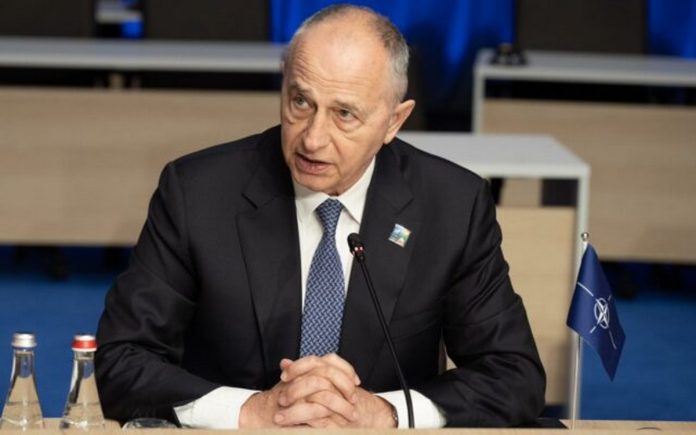NATO deputy secretary general Mircea Geoana in Brasov on Sunday, on the occasion of the launch of his book „The Battle for Romania’s Future. The thoughts of a Romanian at the top of NATO,” said that „you don’t have to be in a high position to be a reliable soldier for the national army,” in the fight for change.
„There are old habits, things that don’t work well in this country and we will need patience and perseverance to change them. I am, however, confident, I am optimistic, I am not one of those who say that things are beyond repair, that the country or the state is broken. I believe, quite simply, that we need a new spirit, new energy and, above all, a team that transcends party colour (…).I am willing to put my shoulder to this fight for a better future for our country, but you don’t have to be in a great position to be a reliable soldier for the national army,” Geoana said.
He pointed out that this book was written during the pandemic, „without any electoral pretensions,” is meant to „order ideas and reflect beyond the electoral cycle or one campaign or another to the components of national success.”
At the same time, answering a question on the creation of a military Schengen, the NATO Deputy Secretary said that Romania is currently in an exceptional situation.
„At NATO, we are trying to put some kind of positive pressure on the civilian and political dimension. I am glad to see that countries in the South East European region, including Romania, Bulgaria, Greece, but also those across the Adriatic – are coming up with consistent proposals for military mobility. We are not talking here about creating special infrastructure for military purposes, they just need to be built according to NATO standards, to be able to transport cargo trucks or cars with citizens going on holiday, and if or when the need arises, to be able to transport also what is specifically military. (…) I am glad to see that, at last, the EU has started to acknowledge the need to invest in trans-European corridors, connecting the Republic of Moldova and Ukraine through Romania to Europe and through Poland to Europe. It is an extremely useful moment for us and, if we could also make projects, not just strategies and implement ideas, not just utter them, I think we would be in an exceptional situation. Romania is not a country that does not have the answer to all the problems, but it is indispensable for the balance of Europe and the regions that surround us,” said Mircea Geoana.
AGERPRES




